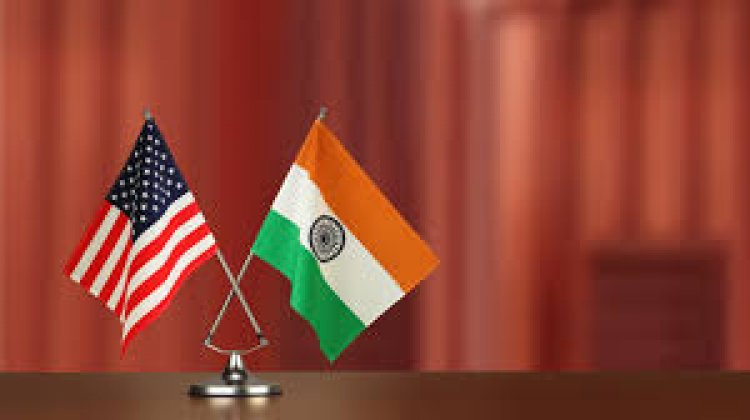India - US: 2+2 Dialogue Amid Tariff Tensions
STORIES, ANALYSES, EXPERT VIEWS

US President Donald Trump Tuesday again claimed that he played a direct role in preventing a potential nuclear clash between India and Pakistan earlier this year, saying he spoke with a ‘very terrific’ Prime Minister Narendra Modi and warned Pakistan that continued hostilities would block trade deals.
Despite India rejecting Trump’s claim and despite trade tensions, the Ministry of External Affairs (MEA) Tuesday, issued a statement saying the two sides “looked forward to increasing defence cooperation, including signing a new 10-year ‘Framework for the India-US Major Defense Partnership’, as well as advancing defence industrial, science, and technology cooperation; operational coordination; regional cooperation; and information-sharing”.
Virtual inter-sessional dialogue discussions
Meanwhile, the India-US 2+2 Inter-sessional dialogue, held virtually Tuesday, had Nagaraj Naidu Kakanur, Additional Secretary (Americas), MEA, and Vishwesh Negi, Joint Secretary (International Cooperation) in the Ministry of Defence, co-chairing the session alongside US Senior Bureau Official for the Bureau of South and Central Asian Affairs, Bethany P Morrison, and Acting Assistant Secretary of Defence for Indo-Pacific Security Affairs, Jedidiah P Royal, as per the MEA statement.
According to a release by the US State Department Tuesday, ‘Through this dialogue, officials advanced bilateral initiatives, discussed regional security developments, and exchanged perspectives on a number of shared strategic priorities.’
The US state department said the 2+2 Inter-sessional Dialogue was held to advance bilateral initiatives and discuss regional security developments. Both sides reaffirmed their commitment to promoting a safer, stronger and more prosperous Indo-Pacific region through the Quad.
They also discussed trade and investment; energy security, including strengthening civil-nuclear cooperation; critical minerals exploration; counternarcotics and counterterrorism cooperation, it said, adding that ‘both sides looked forward to increasing defence cooperation, and build upon the progress made in these areas under the auspices of the US-India COMPACT (Catalysing Opportunities for Military Partnership, Accelerated Commerce & Technology) for the 21st Century and beyond’.
The chairs reaffirmed their commitment to promoting a safer, stronger, and more prosperous Indo-Pacific region through the Quad, the MEA said. India is scheduled to host the Quad Leaders Summit this year, which besides the US, also has Japan and Australia as members.
India posits trust in Quad
In an important statement, foreign secretary Vikram Misri said Tuesday said India remains invested in the Quad. The Quad summit scheduled to be held in India this year. ‘The Quad is indeed an important platform for working on and promoting peace, stability, prosperity and development in the Indo-Pacific region,’ said Misri.
The Quadrilateral Security Dialogue between the US, Japan, Australia and India was set up during the first Trump administration, essentially to counter Chinese influence in the Indo-Pacific region. New Delhi, however, has repeatedly insisted that the Quad is not directed against any country. China has always referred to the Quad as a clique.
Indo-US defence ties remain robust
In short, Indo-US defence ties remain robust, according to Harsha Kakar (military strategic analyst). As per inputs, HAL and GE of the US are to shortly begin negotiations on producing fighter jet engines to power the Tejas Mark II aircraft. These are to include 80 per cent technology transfer, and less critical components be manufactured in India. Other defence procurements remain on track. "This implies that both nations are determined to keep defence distinct from the on-going diplomatic and economic battle. This is a good sign as it indicates that some strategic goals remain aligned….”
















